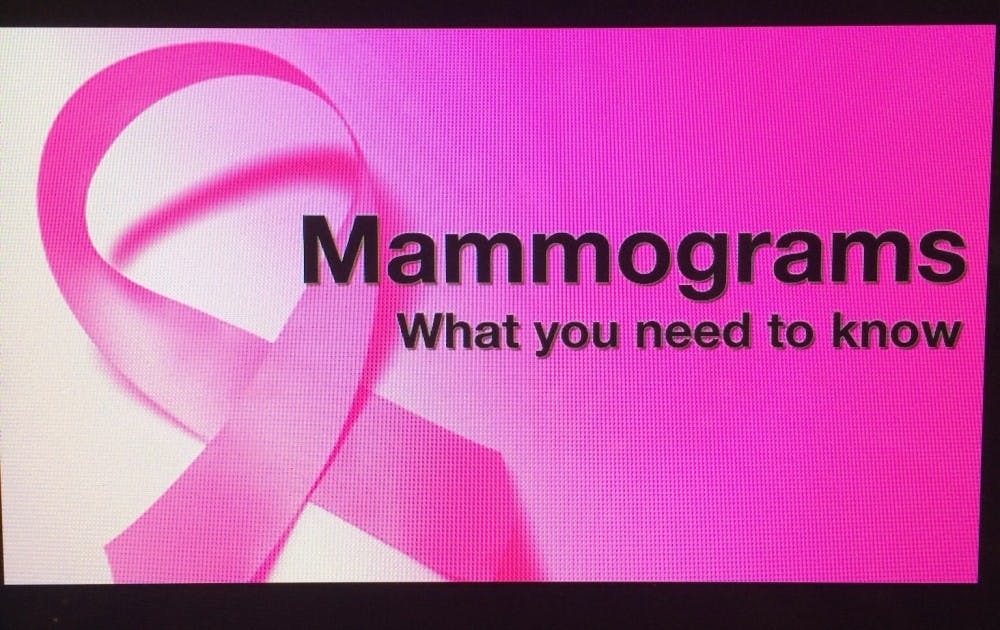To screen or not to screen, that is the question many female college students are faced with when determining whether or not to receive mammograms.
For millions of Americans, the presence of breast cancer goes beyond the "October awareness month" and pink wearing, but rather is a daily battle for their lives.
For so many, the beginning of the journey started with feeling an abnormal bump on the breast and getting it checked out through a mammogram. Mammograms use x-rays to scan for signs of cancer cells in the tissue. While these scans are known to be painful they do have the ability to identify cancer cells and potentially save lives everyday.
According to BreastCancer.org, more than 200,000 new cases of breast cancer will be developed in 2014.
Elon University Physician, Doctor Gennette Archinal, said one in eight women will develop breast cancer during their lifetime. Even with those odds, college students do not need to be screened for breast cancer. Dr. Archinal said it could do more harm than good.
"The younger you are the denser your breast tissue is the more likely you are to see false positives which means you then go through all the stress and worry of having unnecessary surgery and unnecessary fear," Dr. Archinal said.
[youtube=https://www.youtube.com/watch?v=LgrAktI20f8&noredirect=1&w=550&h=315]
Dr. Archinal said that despite the varying opinions most women should begin normal screening through mammograms and even MRI and ultra-sound tests when they are in their fifties and occasionally in their forties. The risk for breast cancer in a person's 20's is low even with a family history.
"Even though we see breast cancer in young women it is very rare," Dr. Archinal said. "So to have routine screen mammograms when you're young if you have no other risk factors is exposing yourself to unnecessary radiation."
Still, even though there is a low risk of getting breast cancer in a person's twenties, they still should be taking steps to keep their bodies healthy as some life style choices can increase risk of breast cancer.
"Don't smoke and don't date anyone that smokes." Dr. Archinal said. "The second thing interestingly is if you gain weight particularly weight gain after your twenties-and I'm not talking about a couple of pounds-but 10 to 20 pounds after your late twenties increases your risk of breast cancer. Alcohol increases risk of breast cancer."
In the meantime, Dr. Archinal emphasizes the need of each person being their own advocate and to see a doctor if there is the slight need for worry.
Mammogram screenings are available year round at the Norville Breast Care Cancer in Burlington, N.C. and in most cases can be covered by insurance and now through the Affordable Care Act.


